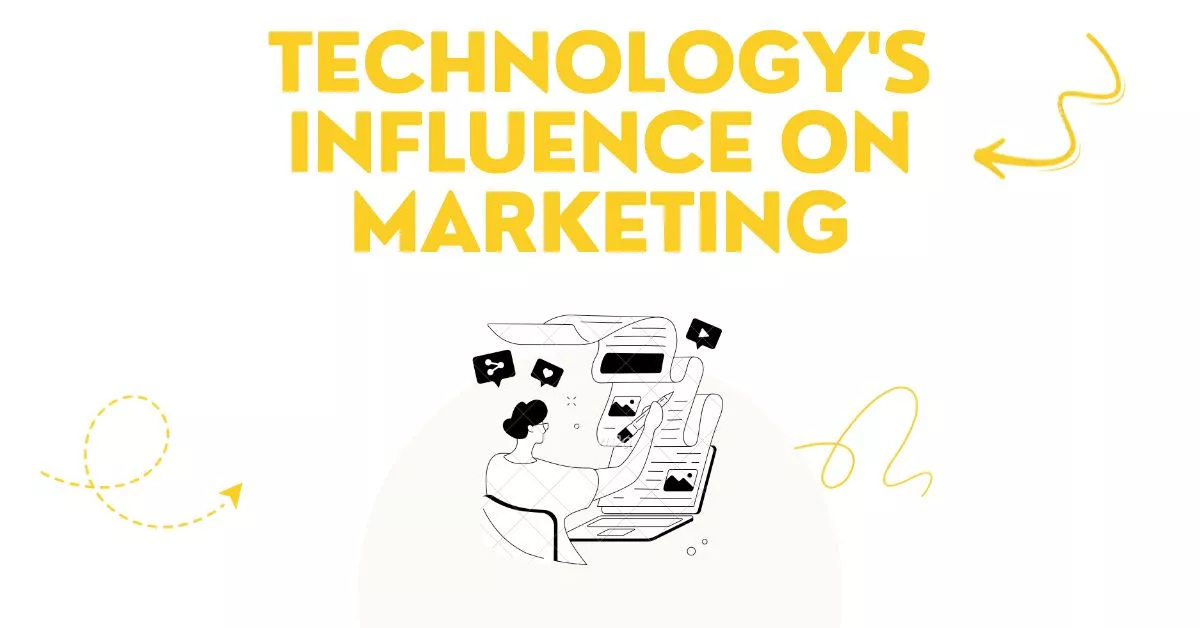Modern technology has ushered in a paradigm shift in the realm of marketing, reshaping strategies, and redefining engagement with consumers. The integration of technology has disrupted traditional marketing norms, revolutionizing the way businesses connect with their audience.

Personalized Marketing
Advancements in data analytics and AI algorithms enable marketers to craft personalized experiences tailored to individual preferences. By analyzing consumer behavior and preferences, businesses can deliver targeted content, enhancing customer engagement and loyalty.
Omni-channel Approach
The digital landscape has birthed a multichannel approach, allowing brands to engage with consumers across various platforms seamlessly. From social media to websites and mobile apps, an omni-channel strategy ensures consistent messaging and user experience, fostering brand awareness and customer satisfaction.
Influence of AI and Machine Learning
Artificial Intelligence and Machine Learning algorithms have transformed marketing strategies. From chatbots offering real-time assistance to predictive analytics guiding decision-making, AI-powered tools optimize marketing efforts, enhancing efficiency and driving conversions.
Video Marketing Dominance
The surge in video content consumption has propelled video marketing to the forefront. Platforms like YouTube, TikTok, and Instagram reels have become powerful channels for brands to convey messages, evoke emotions, and connect authentically with their audience.
Rise of Influencer Marketing
Influencer marketing has become a prominent strategy, leveraging the influence of social media personalities to endorse products and services. Authentic endorsements from influencers resonate with audiences, driving engagement and fostering trust.
Virtual and Augmented Reality
The integration of VR and AR technologies has opened new avenues for immersive marketing experiences. Brands can offer virtual tours, simulate product experiences, and engage users in interactive campaigns, providing a unique and memorable interaction.
Conclusion
Modern technology continues to redefine the rules of marketing, offering innovative tools and strategies to engage, connect, and influence consumers. Embracing these advancements empowers businesses to navigate the evolving landscape, effectively reaching their target audience and staying ahead in the competitive market.

Frequently Asked Questions
How has technology transformed the marketing landscape?
Technology has revolutionized marketing by introducing new tools, channels, and strategies that have fundamentally changed the way businesses connect with their target audiences. Here are some key areas where technology has had a significant impact:
- Data-driven marketing: Technology has enabled marketers to collect and analyze vast amounts of data about consumer behavior, preferences, and demographics. This data-driven approach has transformed marketing into a more targeted, personalized, and measurable endeavor.
- Digital marketing: The rise of the internet and digital technologies has created a plethora of new marketing channels, including websites, social media platforms, email, and mobile apps. These digital channels offer marketers unprecedented reach, engagement, and interactivity with their target audiences.
- Automation and personalization: Technology has enabled marketers to automate many repetitive marketing tasks, freeing up their time to focus on more strategic initiatives. Additionally, technology has empowered marketers to personalize marketing messages and experiences based on individual customer data and preferences.
- Content creation and distribution: Technology has provided marketers with a wide range of tools for creating and distributing engaging content, such as video editing software, social media management platforms, and content marketing automation tools.
- Marketing ROI measurement: Technology has made it easier for marketers to measure the return on investment (ROI) of their marketing campaigns, enabling them to make data-driven decisions and optimize their strategies for better results.
What are some of the specific technological advancements that have influenced marketing?
- Artificial intelligence (AI): AI is being used to automate marketing tasks, personalize customer experiences, and optimize ad campaigns.
- Machine learning (ML): ML is being used to analyze large datasets of customer data to identify patterns, predict behavior, and inform marketing strategies.
- Big data: Big data analytics is being used to gain insights into customer behavior, preferences, and demographics, enabling marketers to create more targeted and effective campaigns.
- Augmented reality (AR) and virtual reality (VR): AR and VR are being used to create immersive marketing experiences that engage consumers in new and innovative ways.
- Social media: Social media platforms have become essential tools for marketers to connect with their target audiences, build brand awareness, and drive engagement.
- Mobile marketing: Mobile devices have become the primary way for many consumers to access the internet, making mobile marketing a critical component of any marketing strategy.
What are some of the challenges and opportunities that technology presents for marketers?
- Data privacy and security: Marketers need to be mindful of data privacy regulations and ensure that they collect, use, and store customer data responsibly.
- Technology adoption and integration: Marketers need to stay up-to-date with the latest technologies and integrate them effectively into their marketing strategies.
- Skills and talent: Marketers need to develop the skills and expertise to use new technologies effectively and manage complex marketing campaigns.
- Measuring and optimizing ROI: Marketers need to develop effective methods for measuring the ROI of their marketing campaigns, particularly those that incorporate new technologies.
- Staying ahead of the curve: The pace of technological change is rapid, and marketers need to continuously adapt and innovate to keep up with the latest trends.
